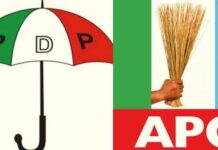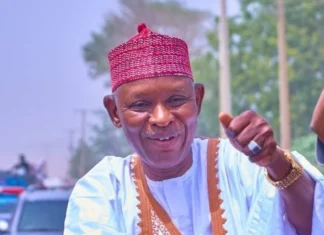Anambra State governorship election is finally upon us.
Eighteen political parties’ candidates slug it out to succeed Governor Willie Obiano.
Anambra, with a population of over 4 million, has just 2.5 million registered voters across its 21 local government areas.
There are 5,720 Polling Units (PUs) across the state.
However, there would be no voting in 86 PUs because there are no voters there, according to Independent National Electoral Commission.
The commission is conducting the election after recovering from a series of violent attacks on its facilities in the South-East.
The attacks have been linked to the outlawed pro-Biafra group, IPOB, whose initial sit-at-home order threatened the conduct of the Anambra election.
Although IPOB has cancelled its sit-at-home order, there is a general apprehension that many voters may stay away from the poll because of the fear of violence.
INEC says it will upload election results from the 5,634 polling units to its result-viewing portal in today’s governorship poll in Anambra State.
It however said collation of results would be done manually as obtained in previous elections and not with the uploaded results.
The commission expressed confidence that the technological approach, designed to enhance transparency in the election management process, would boost people’s confidence in elections and enable Nigerians to view polling unit results in real time as voting ends.
The innovation, introduced in August 2020, was first used by the electoral body in the August 8, 2020 Nasarawa Central State Constituency bye-election and was later deployed in the Edo and Ondo states governorship elections held on September 19 and October 10, 2020, respectively.
INEC National Commissioner and Chairman, Information and Voter Education Committee, Festus Okoye, on Thursday said that after the commission converted 1,112 voting points to full-fledged polling units, the total polling units in the state rose to 5,720.
Okoye said the Bimodal Voter Accreditation System newly introduced by the commission would more or less replace the card readers going forward and would be used for voter registration, accreditation and uploading polling unit results to the result-viewing portal.
He said, “BVAS allows us to use one machine for the purposes of voter registration, accreditation – fingerprint and facial authentication – and uploading of polling unit results to our result-viewing portal. So, it’s a three-in-one solution. We are confident that the BVAS will perform well and it will be the dominant means of accreditation going forward.
“The commission will upload polling unit level results to our INEC result-viewing portal. We are confident that our new technological approach to elections will continue to yield results. We have trained all the ad hoc staff that would use the BVAS and the implication is that we have more or less retired the smart card reader as equipment for voter accreditation.”
Meanwhile, many residents of the state believe that the top contenders in the election are Ifeanyi Ubah of the Young Progressives Party; Valentine Ozigbo of the Peoples Democratic Party; Andy Uba of the All Progressives Congress; Chukwuma Soludo of the All Progressives Grand Alliance and Godwin Maduka of Accord Party.
Other candidates are Etiaba Chukwuogo (AA); Nwankwo Chidozie (AAC); Akachukwu Nwankpo (ADC); Ume-Ezeoke Douglas (ADP); Onyejegbu Okwudili (APM) and Azubuike Echetebu (APP).
The rest are Chika Okeke Adibe (BP); Agbasimalo Emmanuel (LP); Ohajimkpo Emeka (NNPP); Ezenwafor Victor (NRM); Nnamdi Nwawuo (PRP); Uzoh Godwin (SDP) and Obiora Okonkwo (ZLP).











